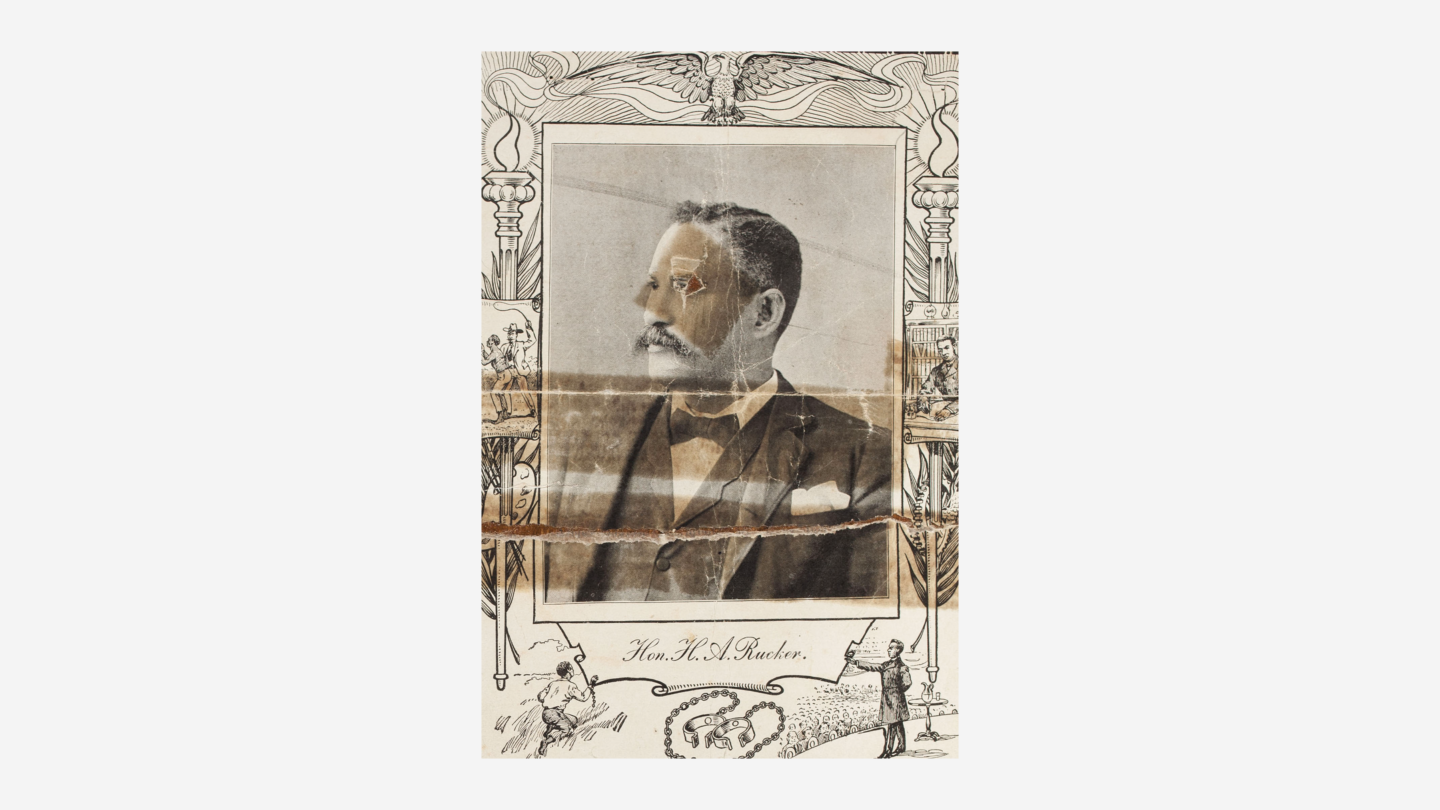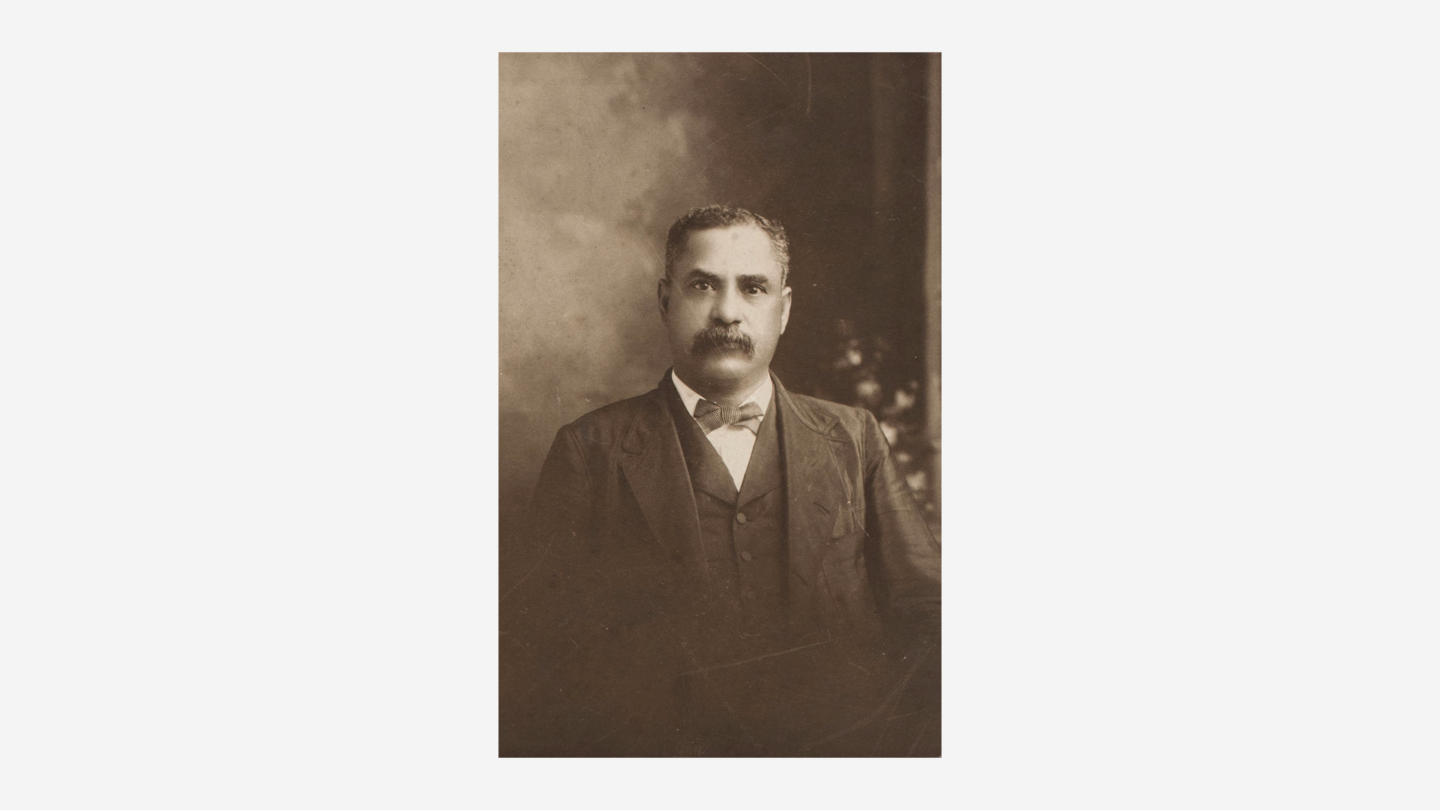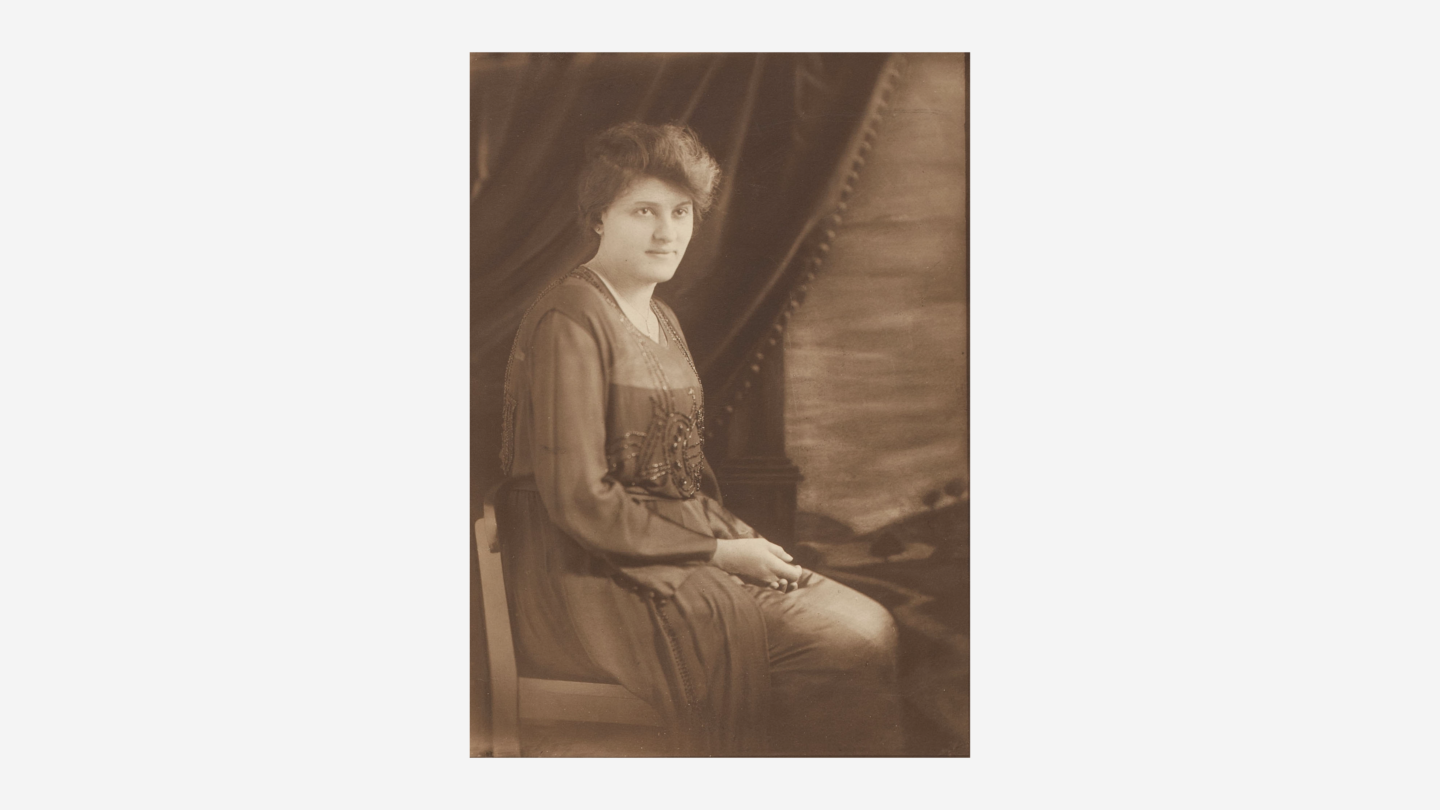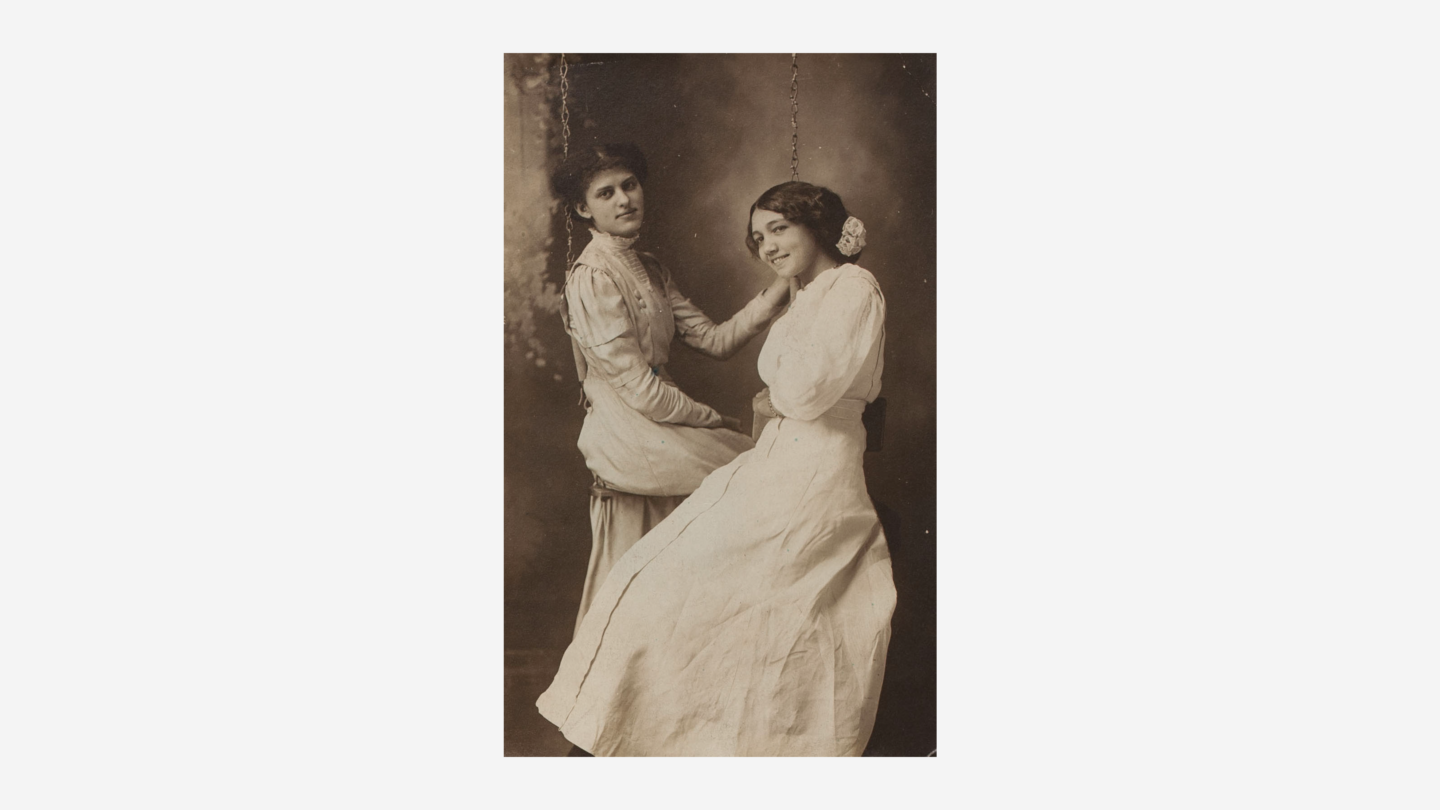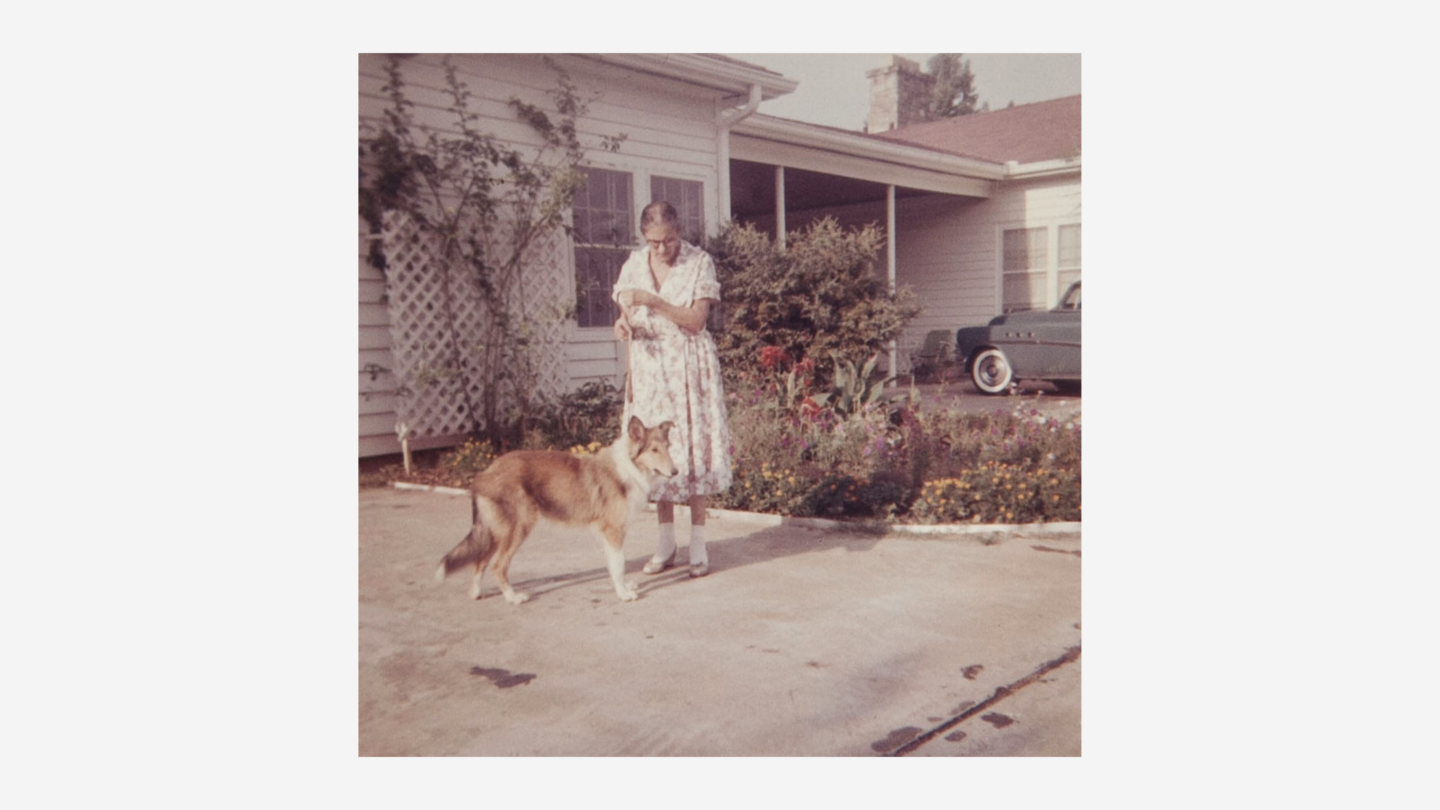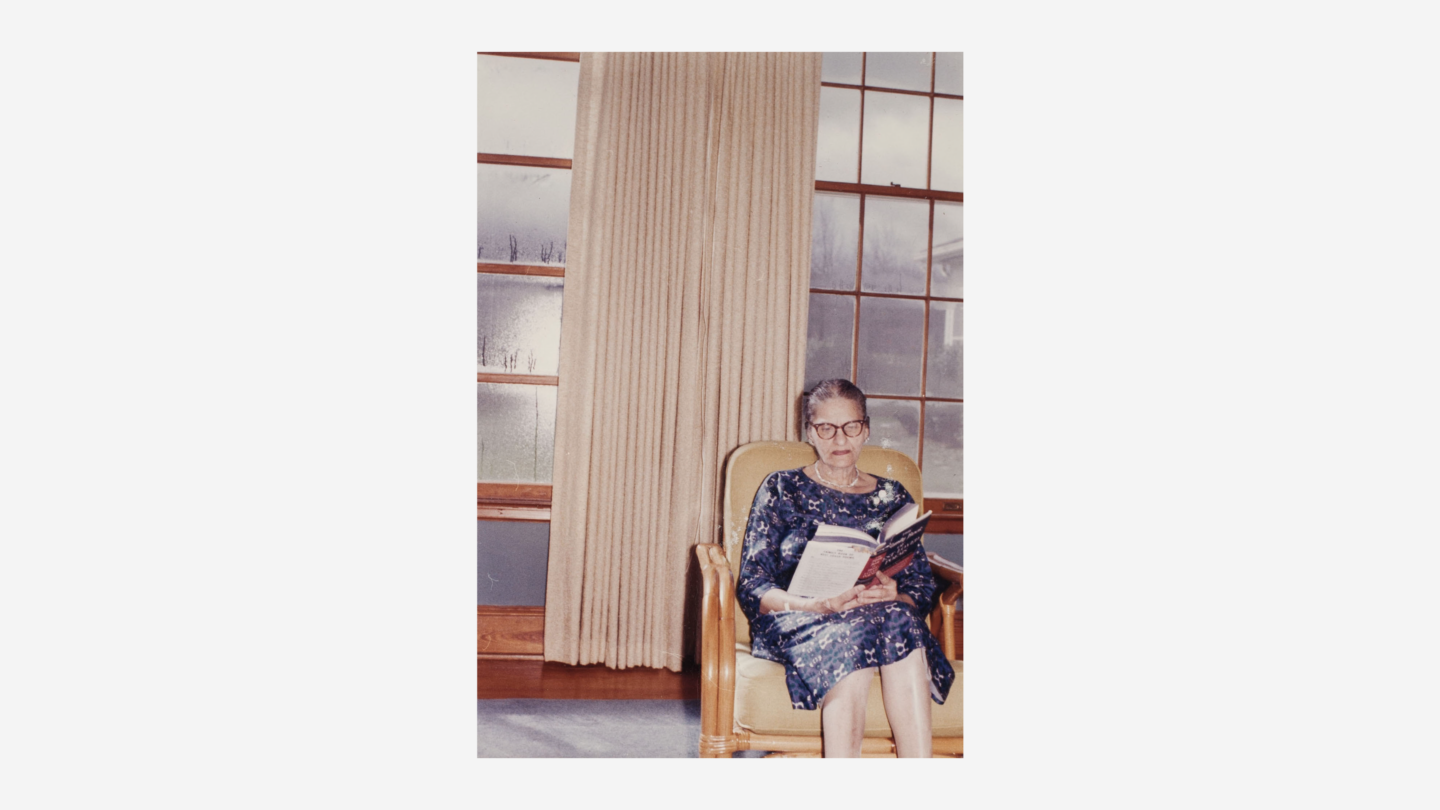Henry Allen Rucker, a prominent Black politician in late-nineteenth-century Atlanta.
Following the Civil War, the South entered the tumultuous period of Reconstruction, during which Black Southerners experienced the rights of citizenship for the first time. Reconstruction ended in 1877, when elite white Southerners who had held power before the Civil War succeeded in regaining power through a combination of national exhaustion with Reconstruction politics and the coercion of Black voters away from polls and out of elections through violence and corruption. Jim Crow segregation was on the horizon, but there were still opportunities for Black people to participate in politics if they played the game. One savvy politician, Henry Allen Rucker, managed to make the most of his position and wield significant influence in Atlanta, Georgia, and throughout the country.
Rucker was born enslaved in Athens, Georgia in 1852. When his mother, Betsey’s, enslaver died in the late 1850s, she gained more control over her life and time and promptly moved herself and her children to Atlanta to be closer to her husband, who was enslaved there. After Emancipation and the Civil War, Henry Rucker’s father supported his family as a plasterer, but his poor physical health soon forced him to leave work. By the end of the 1860s, Henry had left school and was working to support his family. He worked several odd jobs and continued to work on his education in his off hours. His hard work paid off, and, in 1878, he enrolled at Atlanta University (AU).
As he began his university education, Rucker helped establish the Capital City Guards, a Black state militia. Militias like these were common, although short lived, in the South in the late 1870s. They served as vehicles for “civic citizenship and racial pride,” and offered young Black men a place to build community and participate in politics. It was in this militia that Rucker’s long-term political career likely got its start. During his service with the Capital City Guards, Rucker met Jackson McHenry and C.C. Wimbish, both of whom served as officers in Rucker’s militia, and later had prominent careers in the Georgia Republican Party alongside Rucker.
In 1880 while in his sophomore year at AU, finances once again compelled Rucker to leave school to work. His militia connections came to his aid, and he opened a successful barbershop on Decatur Street. At the same time, he became a major player in the Georgia branch of the Republican Party, and among Atlanta Republicans. Rucker was not content to simply join the existing Republican Party and rise through the ranks. One of his first actions as a member of the party was to stage a political coup against its prominent leaders and take charge. Among the prominent leaders he displaced was Jefferson F. Long, Georgia’s first Black congressman and, unfortunately for Henry Rucker, his future father-in-law. He and Long’s daughter, Annie, were married in 1889. Rucker’s coup clearly had an impact on his political and personal life. However, it also had an impact on the political life of the Republican Party on a national scale.
This coup was part of a larger shift in the Republican Party that would bring to a head a burgeoning conflict between the party of the Progressives and the party of Big Business. In the late nineteenth century, many different types of Republicans fell under the broad party umbrella, and competed for power. Some were focused on deregulation to help big business. Some, like Rucker, and future President Theodore Roosevelt, believed firmly in what they saw as empowering individuals to rise to the top of society through hard work. They would become the Progressive Republicans, and their rise to power during the 1880s set them up to have greater influence in the early twentieth century. In the case of Henry Allen Rucker, and his closest ally, William A. Pledger, it also meant that Georgia’s Republican Party was run entirely by Black men from 1880 to 1882.
Rucker and Pledger’s tenure lasted only two years because of a conflict that would plague Rucker for the rest of his political career: white Republicans’ disgust and anger at having to share political power with Black people. Shortly after Rucker and his allies took control of the state party, white Republicans in Georgia split off to form their own branch of the party. This caused serious conflict that was not resolved until Republican President Chester Arthur stepped in in 1882 and brokered a deal in which white Republicans would regain control of the party’s leadership, but its Black leaders would be granted positions in federal offices across the state. Rucker served in a multitude of government positions as a result of this agreement. He worked as a clerk, in charge of Georgia’s “Bonded Account, the seizure and sale of condemned property, and the reports of Storekeepers and Gaguers and distillers.”
After about fifteen years of this varied political work, Rucker was appointed to the position that would come to define his political career. In 1897, he was named Georgia’s Collector of Internal Revenue by recently elected President William McKinley. Republican kingmaker and Ohio Senator Mark Hanna heavily influenced the appointment. Hanna was McKinley’s top adviser, and he believed the Republican Party’s slow loss of interest in courting the Black vote was going to hurt it in the long run. To help curb that risk in Georgia, he asked Rucker to help him run McKinley’s Georgia campaign in 1896, and later suggested his appointment as Collector.
Rucker’s appointment was a big deal—he was the first Black man to serve as Collector of Internal Revenue, and he was, at the end of his tenure, the longest-serving Collector in Georgia’s history. A state Collectorship was a powerful position—Rucker controlled not only tax collection for the whole state, but also had jurisdiction over the regulation and supervision of liquor and tobacco production and sales. Most important in the late-nineteenth-century world of patronage politics, however, was a small army of civil servants, all of whom he could theoretically appoint, giving him enormous political influence. He held his office, and wielded the influence that came with it, for 14 years, until he was removed by President William Howard Taft in 1911.
Rucker’s 1897 appointment came as a surprise to white Georgia Republicans. They had put forward a different candidate. Their choice was former Union army Major and Reconstruction-era Atlanta Marshal W.H. Smyth. But Henry Allen Rucker had two things going for him: in addition to having the necessary influence in the Georgia Black Republican community to ease Hanna’s electoral concerns, Rucker also had the support of some wealthy white Democrats that ran Atlanta in the late nineteenth century. Though these Democrats, like capitalist James W. English Sr., publicly condemned Rucker’s appointment, they supported it privately, as was eventually revealed by the Atlanta Journal and the Atlanta Constitution when it became clear that Rucker was the intended selection for the Collectorship. English and the other men who supported Rucker had dealt with him for years in his earlier political positions and felt that he would be a closer ally to their interests than a white Republican nominee might be.
Though this might seem strange for Southern white elites at the turn of the twentieth century, it serves as a clear example of how pre-Jim Crow segregation worked in New South cities like Atlanta. When McKinley appointed Rucker, elite white politicians saw elite Black politicians as their allies (though not their equals) because they shared an interest in the same kinds of finance and labor regulations. White elites accepted men like Rucker holding power, so long as they only attempted to exercise political power in the Black community, and white elites were allowed to dictate to both Black and white people. Rucker, who at this point, was wealthy, and who by virtue of his mixed-race status and long business and political work had connections to white elites, must have seemed like a safer candidate than a white Republican that white Democrats would have seen as less easy to influence, particularly because of Smyth’s connections to Reconstruction-era Republicanism.
Though Rucker had local and national support, white politicians in Georgia who were generally uncomfortable with his position set about limiting what he could do with the Collectorship. Immediately after Rucker’s appointment, several current white staff members in the Collector’s office resigned. They hated that the federal government appointed a Black man in the first place, much less the thought of working under him. Ironically, this left open many more patronage seats in the Collector’s office than expected, increasing Rucker’s potential power, and raising long-term fears for white politicians across party lines.
Because theirs was a patronage position, Collectors could hire whoever they liked to serve under them. In the case of many late nineteenth-and early twentieth-century Black politicians like Henry Allen Rucker, this meant appointing as many Black men as possible, both as a way of attempting to level the political playing field as their voting rights were restricted, and a way of furthering his work as a “race man”—an important concept in late-nineteenth-century Black politics that emphasized both loyalty to the Black community and pride in one’s Blackness.
White politicians’ worry became panic when Rucker’s first two appointments to clerkships in the Collector’s office were both Black men. Their solution was to pass a law, spearheaded by Georgia Democratic senator, Alexander Stephens Clay, to heavily limit the way Rucker could hire employees for the 125 patronage positions in his office. Suddenly, the majority of the positions were not his to decide. Rucker was appalled. Clay, and his allies, Rucker said, “battered into silence [any] live Republican attempting to do anything to build up the party.” This proved to be a far-reaching political issue for Rucker, both because it meant that biased white politicians limited his political power, and because it gave rival Black politicians a powerful tool to damage him. Using the importance of patronage as a promotion of Black political involvement to support their argument, men like newspaper editor and future Republican politician Benjamin J. Davis Sr. claimed that Rucker was deliberately overlooking Black candidates to cater to white politicians and keep his job.
Despite these setbacks, Rucker held on to his position and served as an effective and well-liked collector for fourteen years. As long as he kept his policies in line with white business elites’ needs, they supported him, and though he continued to critique Rucker for the rest of his career, Benjamin Davis was an outlier in Atlanta’s Black community. Rucker was generally supported and well-liked by Black Atlantans. He was situated well enough that he survived everything from the 1906 Atlanta Race Massacre to the near-constant attempts of white politicians, both local and national, to remove him from office. Though these politicians railed against him because of his race, few could find a reason to complain about his job performance. Much of Rucker’s day-to-day work involved the actual processes and bureaucracy of tax collecting, but the still-powerful nature of his patronage position and the close relationship it gave him to federal politics and politicians meant that he was one of the leading Black Republicans in Georgia and the South.
Rucker’s position didn’t just give him name recognition. One of his closest friends and political allies was Judson Lyons, a fellow Georgian and Black politician who served as Register of the Treasury during the terms of Presidents William McKinley and Theodore Roosevelt. Lyons frequently wrote to Rucker for political advice, such as in 1904 when he asked Rucker to help him “select a ‘fit and proper man’ (colored) to second the President’s nomination in a five minute speech.” The nomination he references here was the nomination of future President Roosevelt (who ascended to the presidency in 1901 when President McKinley was assassinated) at the Republican National Convention. The man Rucker and Lyons landed on was likely Harry Sythe Cummings, the first Black City Councilman of Baltimore, Maryland who spoke at the 1904 Convention in Chicago. Rucker’s involvement in choosing a Black speaker to support that nomination speaks to the influence he wielded. Because he was one of the few Black politicians in the US at the time, Rucker often gave advice and recommendations in unusual areas for Collectors; much of his work was behind the scenes.
Some of Rucker’s political roles were more public. In addition to helping select a speaker for the 1904 Republican National Convention, Rucker also served as a delegate from Georgia. This was a common role for him; he served as delegate to the 1886, 1896, 1900, 1904, and 1908 Republican National Conventions. In the late nineteenth and early twentieth centuries, these conventions had more nominating power than they do today. Delegates did not cast symbolic votes representing the results of primary election. Instead, they were deciding who to nominate as their party’s presidential candidate at the convention itself, giving them more influence than the average voter over the choice of presidential candidates. Rucker, serving as one of a few Republican delegates from Georgia, was directly involved in making this choice. But he wasn’t alone. Tagging along with him to many of these conventions were his children, particularly his daughter Lucy.
Lucy Rucker, later Lucy Rucker Aiken, attended her first Republican National Convention in 1904, when she was a small child. Her father strongly believed that his children would best learn the importance of participating in their political system by direct participation, and he made sure to bring them along to political events whenever possible. At her first convention, Lucy was invited to hold the American flag with her older brother and sister. She remembered the event when she spoke to an oral historian in 1977: “Speaker [Joseph Cannon, chair of the 1904 convention] looked down, saw [the three of us] and he said, ‘I want the little children from Georgia to come up and hold the flag.’ And the little children from Georgia were embarrassed that he had even asked us. And we turned to Papa, and Papa said, ‘Go ahead,’ but we wouldn’t do it.”
Henry Allen Rucker, again bringing Lucy along, attended his last national convention as delegate in 1908. In 1911, he was removed from office by Republican President William Howard Taft. Taft bowed to longstanding pressure and replaced him with a white candidate. When Rucker’s government career ended in 1911, he had a choice to make about his future. He was close to both Booker T. Washington and W.E.B. Du Bois, as well as other Black activists who did most of their work outside of electoral politics. Though their work likely showed Rucker other paths that his activism might take, he chose to return to politics. Rucker worked with Theodore Roosevelt’s third-party presidential campaign in 1912 and maintained strong enough connections in the Georgia Republican Party that he remained the go-to contact for leaders like Washington and his wife when, for example, they needed to make discreet inquiries into Tuskegee students from Atlanta.
For much of his later political career, Rucker’s work included his daughter, Lucy. The reluctance to participate in politics little Lucy had felt at the 1904 convention soon faded. By the time she was sixteen, she was working as her father’s political secretary. She remained politically active through the rest of her life, joining the Civil Service after graduating from college, and working with the Signal Corps through the first World War. She later worked alongside her husband, prominent Atlanta real estate developer and Civil Rights activist Walter “Chief” Aiken, during his time running organizations like the Fulton County Citizens Democratic Club.
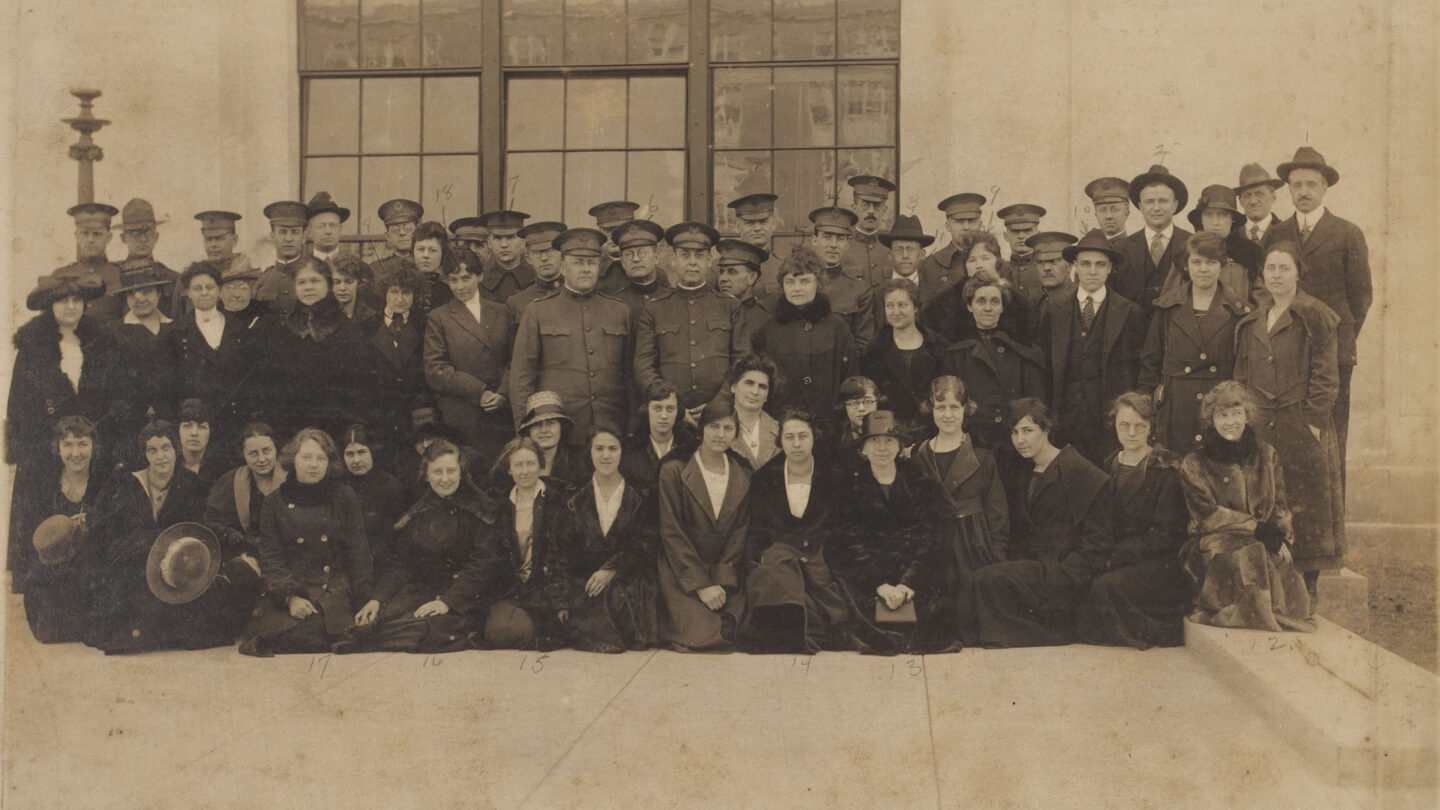
Lucy Rucker Aiken (front, center) with her colleagues in the US Signal Corps circa 1918.
Henry Allen Rucker’s and Lucy Rucker Aiken’s involvement in politics had a specific goal. Henry Allen Rucker, and his daughter, were lifelong anti-segregation advocates, and they built their political careers around this activism. Lucy Aiken demonstrates this particularly well. When she worked for her father, she was a Republican, but when she worked for her husband, she appears to have been more of a Democrat (like him). According to an oral history interview that she later gave, Lucy Aiken was a strong believer in an idea of marriage in which a woman adopted most of her husband’s beliefs, so it is possible that her changing politics were the product of her 1920 marriage. However, it’s equally possible that her shifting beliefs had more to do with resistance to segregation. By the time she and Walter were entering the political scene as adults, Republican politicians opposed to President Franklin Delano Roosevelt’s New Deal policies were beginning to ally themselves with pro-segregation Southern Democrats who opposed Roosevelt’s support for civil rights, making them less appealing to a civil rights activist.
For Henry Allen Rucker, the fight was acute. He came into political power just as Jim Crow legislation picked up steam, and he tried to stop it wherever he could. A particular irritant to Rucker was the white primary. The white primary made it illegal for anyone who wasn’t white to vote in Democratic primaries in the state of Georgia. This effectively disenfranchised non-white voters, because Georgia was dominated by the Democratic Party in the early twentieth century. If a candidate won the Democratic nomination, they were almost sure to win the general election. When Rucker became Collector in 1897, there was already a white primary in place in Atlanta—there had been since 1891—and Rucker saw its negative impact on democracy in Atlanta’s Black community. When it became clear that the state Democratic Party wanted to institute the same policy across Georgia, Rucker did what he could, alongside colleagues like Judson Lyons and newspaperman J.H. Deveaux, to fight the law by lobbying the Republican National Committee. Despite the efforts of Rucker and his Black allies across Georgia, the white primary was eventually passed by the Georgia Democratic Party in 1900, strictly limiting the voting rights of Black men across the state. Rucker continued to fight other discriminatory voting laws throughout his political career, and, as other discriminatory laws generally were passed in his city and state, he resisted segregation in his personal life.
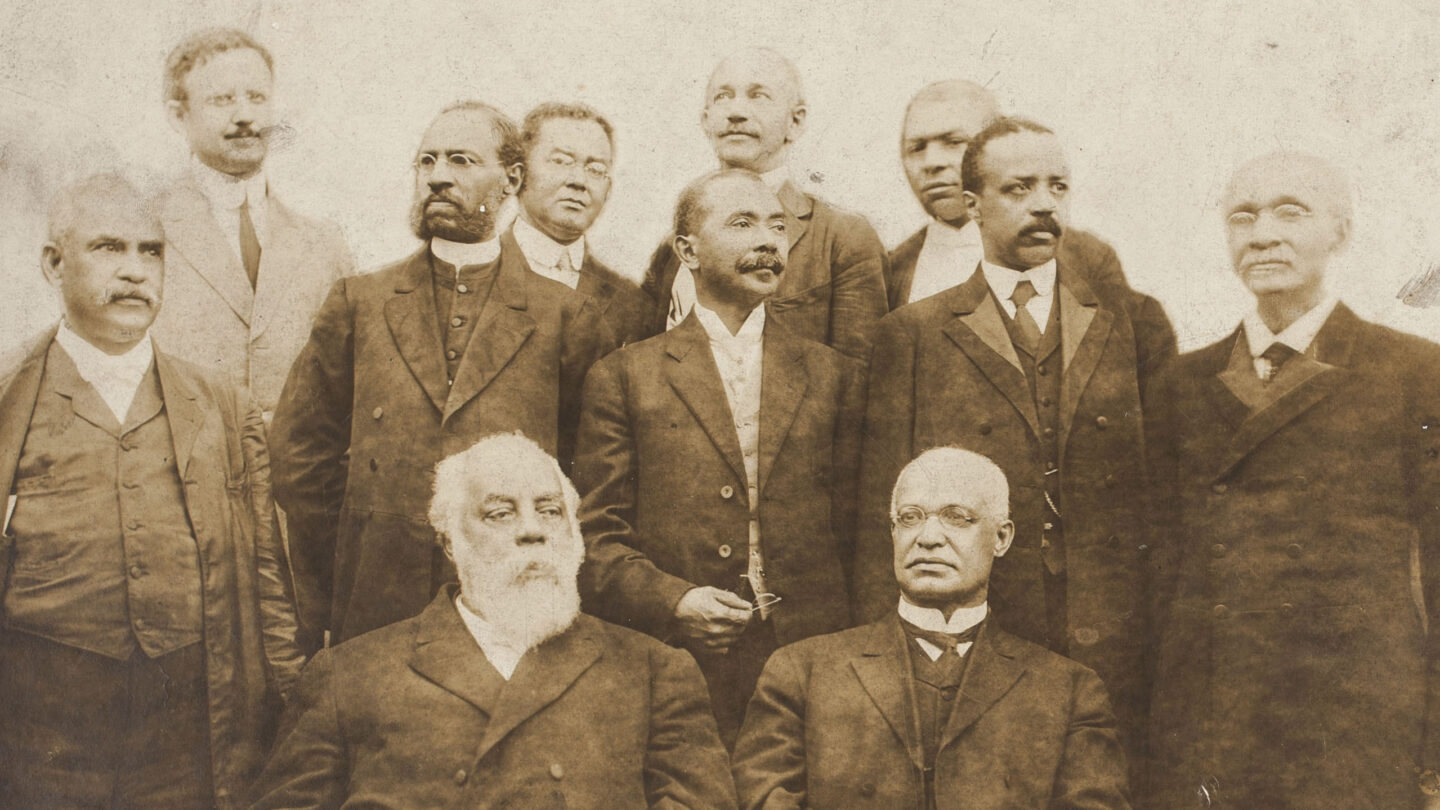
Henry Allen Rucker, far left, with some of his Black political allies and colleagues.
Lucy Rucker Aiken remembered this resistance clearly. As she grew up, Atlanta became more segregated, and her father, along with many Black people across the state of Georgia, boycotted segregated institutions whenever he could. The segregated streetcars of Atlanta, she recalled in a 1977 interview with Harvard University’s Black Women Oral History Project, were off-limits. “My father felt that his [nickel] was worth as much to him as it was to any white person, and he said, ‘If you can’t get the same accommodations, you’re going to walk.’ So we walked.” She was similarly forbidden from attending movies or visiting soda counters. For the most part, she felt that these limits improved her childhood, encouraging her and her siblings to read for entertainment instead. Soda counters though, were a point of contention. “[…] Papa would not permit us to go, and I said, ‘Well, I hope that the man I marry will take me to a soda fountain.’” Walter Aiken came through. When he built his and Lucy’s sprawling home on a hill in Atlanta, he was sure to install her very own soda fountain.

Soda fountain in Lucy and Walter Aiken’s home, Aiken Estate, now owned by Clark Atlanta University.
Henry Rucker’s opposition to segregation had specific conditions that reflected his financial status. Because the streetcar, soda fountains and similarly segregated institutions provided inferior service to Black customers, he refused to use them. Rich’s department store though, was fair game. It was segregated, but well-to-do Black customers like him, in the early twentieth century, did not receive significantly worse service in his estimation. They sat on the opposite side of fitting rooms/shops from white customers, rather than being sent to a different part of the store or barred altogether. Rucker found this if not desirable, then at least acceptable.
Though he and his family boycotted certain segregated services in Atlanta, much of Rucker’s work to challenge the development of racial segregation laws in the South was done through the political system. He used his Collectorship and his position as a RNC delegate to further the interests of Black Georgians, both through the nomination or promotion of anti-segregation candidates and through his successful and diligent work as a Collector—which helped prove the political abilities of Black men to (some) skeptical white audiences. The same was true of his daughter and her husband when they began their work as civil rights activists, particularly after the Second World War.
Lucy Rucker Aiken and her husband, Walter Aiken, were both heavily involved in civil and voting rights organizations like the Atlanta Negro Voters League, the Atlanta Junior Voters League, and the Fulton County Citizens Democratic Club. Walter Aiken’s development work was also a part of their activism. Using federal housing grants, he built hundreds of homes and apartments for lower-income Black Atlantans, filling a gap that both the state and the city government were unwilling to address with their funds. He also built the Waluhaje, which served as a low-rent apartment building for young professionals and the elderly, and as a hotel for Black visitors to the city, who often struggled to find accommodations. Walter focused on the publicity and building design of these endeavors, while Lucy did most of the clerical and administrative work that kept their business, and the services it provided, afloat.
Lucy Rucker Aiken, her father, and her husband, were deeply and fundamentally opposed to the inequality of access imbedded in the Jim Crow system. As their work and activism shows, all three were dedicated to working within the existing US political system to make change. Henry Allen Rucker began that work and passed his values on to his daughter and son-in-law. This is clear, for example, in the Aikens’ focus on helping Black voters register despite restrictive laws, rather than changing those laws as a first step, or Walter’s use of Federal Housing Administration grants to build homes for low-income Black Atlantans. In both generations, this commitment can be seen a as part of a firm belief in the US political system, and in democracy’s ability to make things right for everyone involved in the democratic process. In many ways, it can also be seen as the result of the social status of the Ruckers and Aikens. Henry Allen Rucker was a successful businessman and politician who had enough money to buy his family a beautiful home in an integrated neighborhood on Piedmont Avenue. Lucy Rucker Aiken was college-educated, a rarity for a woman of any race in the early twentieth century, and Walter Aiken was, by the late 1950s, one of the wealthiest Black men in the United States.
The Ruckers’ and the Aikens’ social status meant that they did not have to deal with the compounding issue of poverty when combating the deep racism of the emerging Jim Crow South. Their access to hospitals, education, and other aspects of life that were strictly limited for many Black Americans was less restricted. Like most Black Georgians, their ability to vote was strictly limited by the white primary. However, the white primary in Georgia was declared unconstitutional in 1942, and after that point, it was likely that the Aikens were able to avoid other voter suppression tactics of the time. Registration would still not have been easy; white election officials would have fought their ability to pass literacy tests and pay poll taxes. But the Aikens were determined, highly educated, and very wealthy. They fought to secure their right to vote, and, after they had, they turned their attention to helping other Black Atlantans do the same.
The wealth and resources possessed by the Ruckers and Aikens could only get them so far in the Jim Crow South. Lucy Rucker Aiken was able to attend Atlanta University, but she walked a mile and a half to school every day because she wouldn’t ride the segregated streetcar. Henry Allen Rucker was a powerful federal official in Georgia, but his power was curbed because of his race. And, despite his power, there was little he could do other than hide in a nearby post office during the Atlanta Race Massacre in 1906, hoping that its status as a federal building would protect him from violence. Experiences like these, and their relationships with family members like Jefferson Long, who let each of his grandchildren sign the autograph book he took with him to Congress alongside political greats like Thaddeus Stevens and Charles Sumner, pushed Henry Allen Rucker and his daughter into the world of politics.
Lucy Rucker Aiken remained politically involved for most of her life, though she retired when Walter Aiken died in 1964. For her whole career, she resisted segregation, but she took issue with some aspects of the Civil Rights Movement. Some of her dislikes were the result of things that the Civil Rights Movement was tied to, such as the promotion of welfare and organized labor. One of Lucy Rucker Aiken’s biggest gripes with the Civil Rights movement of the 1960s, though, was her feeling that, for many young Black people, it meant forgetting the work of politicians like her father:
“The young folks of today have not ever heard of Papa, nor have they heard of Mr. Proctor [a pastor who worked with Rucker], nor have they heard of Jefferson Long and a lot of other people. And that’s because it’s not in history, they don’t know anything about them. […] They just don’t know. They really think that Dr. King started desegregation. He didn’t. They had worked on desegregation long before…”
Her frustrations with the lack of credit afforded to her family members reflect the diversity of experiences that Black Southerners had under Jim Crow and the generational divide in the movement.
Jim Crow didn’t begin immediately, and in the time between the end of Reconstruction in 1877 and the beginning of firm Jim Crow segregation, politicians like Henry Allen Rucker worked both to support their communities and to fight the legislation that was further restricting the rights of Black Americans across the South. Rucker’s work impacted that legislation and its aftermath, but it also impacted future activists. He left a legacy that profoundly shaped the activism of his daughter, influencing her politics and the way she carried them out. His influence on her understanding of the democratic system is why Lucy Rucker Aiken collected her father’s and husband’s papers and left them to Atlanta History Center when she died, along with money to fund the Aiken Lecture Series, which dedicates itself to Black history in the US before World War II.
Aiken wanted to make sure that her father was remembered for the important work that he did, and to push back against the popular idea that Black participation in politics in between Reconstruction and the Civil Rights Movement was nonexistent. Henry Allen Rucker’s story certainly proves that idea wrong. He held political positions in Atlanta and Georgia for nearly thirty years. He did effective and meaningful work in those positions while also using them to fight against segregation and for continued access to equal political and civil rights for Black Americans. His eventual removal from power and the rise of discriminatory legislation despite his resistance speaks to the power of Jim Crow politics in the South at the turn of the twentieth century. And his daughter’s lifelong work to preserve and honor his memory and continue his work speaks to the enduring legacy politicians like Henry Allen Rucker had in the movements of which they were an early part.
